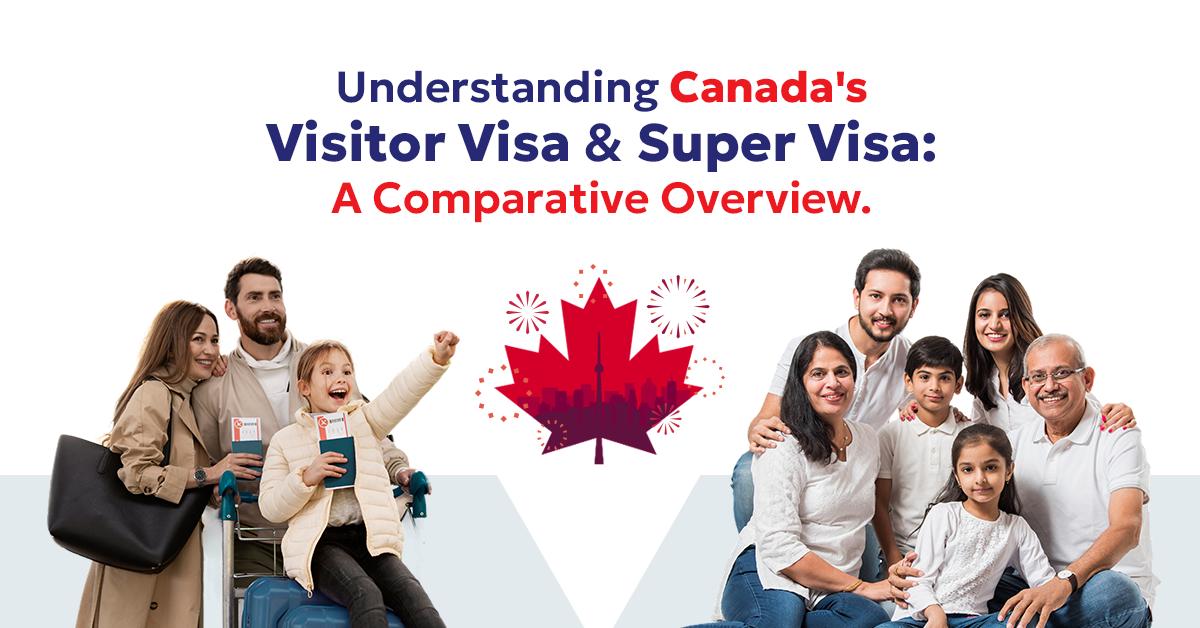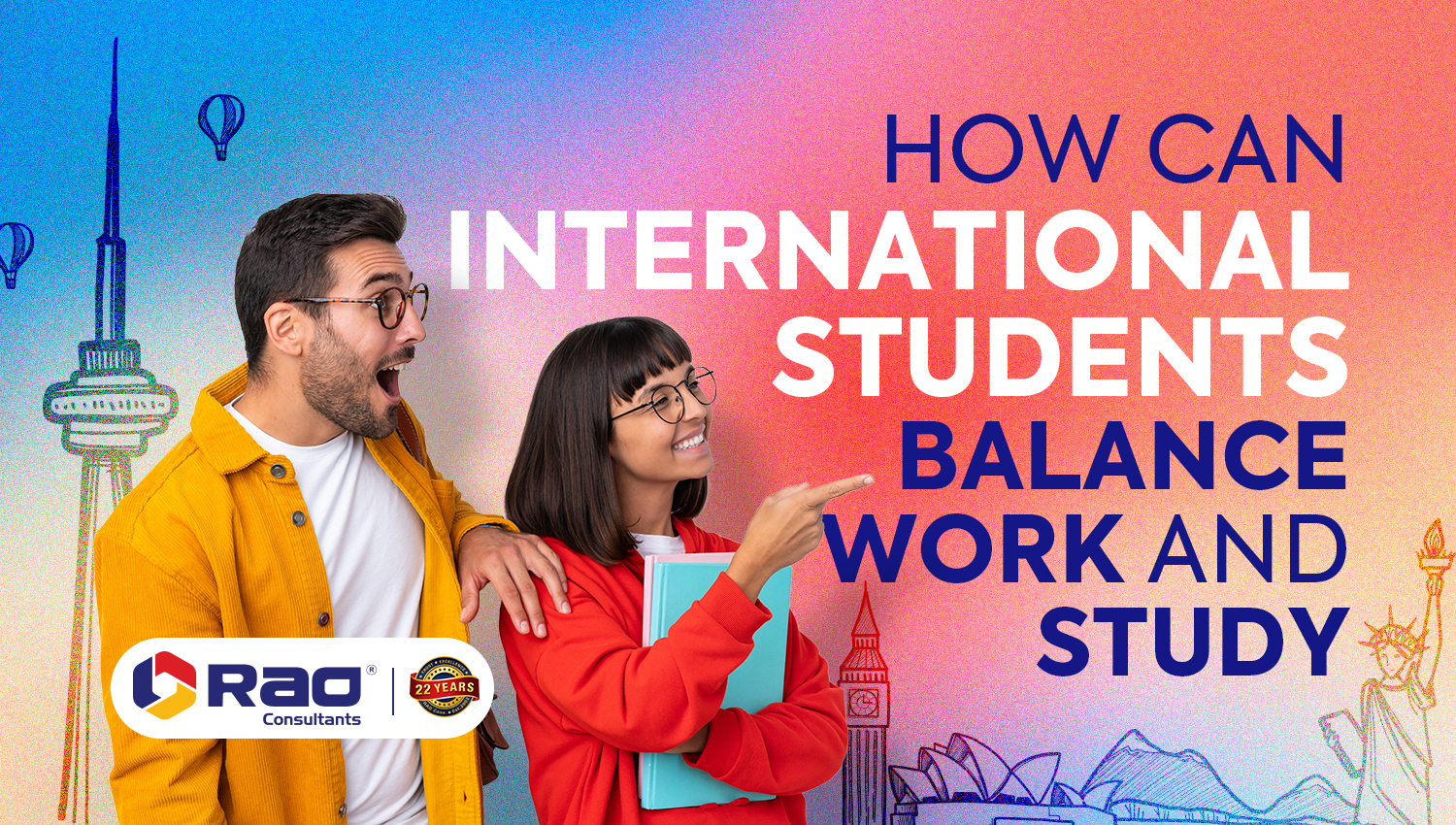
admin
February 5, 2024
Understanding Canada’s Visitor Visa and Super Visa: A Comparative Overview
Need help with visiting Canada? Get a quick understanding of the key differences between Canada’s Visitor Visa and Super Visa. Discover which one might be the right choice for you.
Canada, a country known for its diverse culture, scenic beauty, and welcoming nature, is a popular destination for travellers worldwide. The country offers many visa options, each tailored to meet specific needs and circumstances. Among these, the Visitor Visa and Super Visa are two prominent categories often confused due to their similar names. However, they cater to different visitor categories and have distinct features.
A Visitor Visa, or Temporary Resident Visa (TRV), is a pass from Canada that lets people from other countries come to Canada for different reasons. These can be for a holiday, seeing family and friends, business meetings or conferences, or short-term study. Usually, these visas last up to six months, but sometimes they might be for less time, depending on why the person is visiting.
The Super Visa is a special kind of visa that started in 2011. It’s for parents and grandparents of people who live in Canada permanently or are Canadian citizens. This visa lets them stay in Canada for a long time, usually up to five years, on one visit. The Super Visa is great for bringing families together and letting them spend lots of time with each other.
Key Differences between Canada’s Visitor Visa and Super Visa:
Purpose:
Visitor Visa: Ideal for tourists, family visits, or business trips.
Super Visa: Designed for parents and grandparents of Canadian residents, offering extended stays.
Duration of Stay:
Visitor Visa: Allows a stay of up to six months.
Super Visa: Permits a stay of up to Five years, providing more time with family.
Application Process:
Visitor Visa: Requires essential eligibility criteria like ties to your home country and sufficient travel funds.
Super Visa: Requires additional steps like medical insurance and an invitation letter from your family in Canada.
Financial Requirements:
Visitor Visa: Applicants must demonstrate they can support themselves during their visit.
Super Visa: The applicant’s family in Canada must prove they can cover the applicant’s expenses.
Feeling excited about planning a trip to Canada? Contact us today, and let’s set sail on your visa adventure together! Count on our expertise and support to navigate the differences between a Visitor Visa and a Super Visa, making your journey smooth and stress-free.
Share onYou May Also Like

How Can International Students Balance Part-Time Work and Study?
Studying abroad is a dream come true for many students. when you’re juggling part-time work and study then it’s enriching, exciting, and at times, a little overwhelming. Sounds like walking a tightrope, doesn’t it? For many international students, working part-time isn’t just a choice; it’s a necessity. But how do you keep your grades up […]
Read More
Top Part-Time Jobs for International Students in Ireland
Are you planning to study in Ireland and wondering how to manage your expenses? You’re not alone. Thousands of international students ask the same question each year. The good news? Ireland offers plenty of part time job opportunities that can help ease your financial load—and even boost your resume. Think of it like riding a […]
Read More
Most Budget-Friendly Countries for Indian Students to Study Abroad
Study abroad is a dream shared by many Indian students—but the rising cost of international education can often make that dream feel out of reach. Between hefty tuition fees, expensive living costs, and currency exchange challenges, many students and their families hesitate to take the plunge. But what if you could study in a country […]
Read More